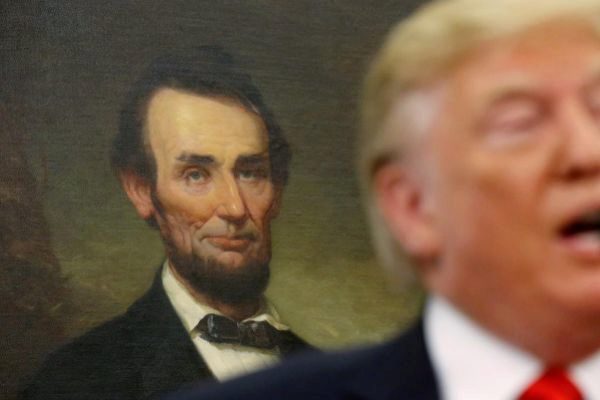- Donald Trump: From 'Russiagate' to 'Ukrainegate' and now to 'Australiagate'
- USA: Trump compares the intelligence officer who leaked the Ukrainian call with a "spy"
How are the 'Russiagate' and the 'Ukrainegate' different? The two major scandals of the Presidency of Donald Trump refer to countries that were part of the Soviet Union. But there the similarities end.
The 'Russiagate' is the supposed attempt to coordinate the Trump campaign - especially his eldest son, Don 'junior' , his son-in-law, Jared Kushner, and his chief of electoral strategy, Paul Manafort - with people well connected with the Kremlin to influence the 2016 elections, and also the president’s efforts to obstruct the investigation. He began to make headlines before Trump swore in office, when the existence of the so-called 'Steele report' in which the alleged sexual practices of the US president with prostitutes in Moscow were described and ended more soberly with the appearance of the Severe special prosecutor of the case, Robert Mueller, in Congress on July 24.
A day later, on July 25, it is the key day of the Ukrainegate, when, according to an anonymous whistleblower, Trump tried to force the President of Ukraine, Volodymyr Zelensky to investigate the activities that Hunter Biden had carried out in that country. Hunter Biden's father is Joe Biden, who today leads the Democratic Party polls in the presidential race next year (Biden is also on average 7.7 points ahead of Trump, according to the RealClearPolitics website, but at this stage of pre-campaign the polls have a predictive value similar to that of the Tarot).
That is what happened - or what they say happened. But what can happen from now? Is the Trump presidency at stake? Why did the 'Russian plot' have much less impact in 30 months than the 'Ukrainian plot' has had a week?
To answer such an arduous question, THE WORLD has gone to the place where the best informed journalists are concentrated: the bar. It is not a joke. It was on Saturday, when the author of these lines met the press journalist alive with more Pulitzer, Thomas Friedman, of the 'New York Times', queuing for a drink at the opening gala of the Kennedy Center season of the Washington Arts that, above, is next to the Watergate Hotel, that is, the cradle of the biggest political scandal in US history. The talk continued for a while, and on Monday, Friedman - who in 2018 won the EL MUNDO Columnists award - sent an email developing his views to reflect, in his own words, "what I think for now!" .
And what he thinks is that the 'Ukrainegate' is different for three things:
First. "The fact that the anonymous whistleblower belongs to the Intelligence apparatus and his name and testimony [in Congress] will be made public at some point." For Friedman that is important because he is an "independent witness , who is probably part of a small group of officials that public opinion will consider to be moved to act for their respect for the Constitution."
For the journalist, that will make it difficult for Trump's team to present the whistleblower (or whistleblowers) as politically motivated actors, and possibly will make his testimony have a significant impact on public opinion. The possible strength of the accusers explains "why some Republican senators have not yet said anything about the scandal: they are concerned about the presence of independent witnesses."
The second factor is something that the media are neglecting: "The fact that the US ambassador to Ukraine, Marie Yovatovich , was apparently stopped trying to prevent Rudy Giuliani from carrying out his actions." Giuliani, former mayor of New York and former candidate for the Presidency, is the personal lawyer of Donald Trump and was the man the president sent to Ukraine to try to convince that country to investigate Hunter Biden.
Yovatovich tried to prevent these activities and, according to the anonymous complaint against Trump, was dismissed for it in May. In his July 25 conversation with Zelensky, Trump refers to her as "the former US ambassador to Ukraine, the woman, was not good, and was with people who were not good, so I want you to know that .. well, some things are going to happen to him. "
Friedman believes that "without a doubt, Yovatovich will declare [in Congress] at some point, and public opinion will not like that a responsible diplomat has been dismissed for such blatantly political reasons."
The third and final element has to do with the effect that the previous two points can have among the voters. Friedman does not deny that "none of these things will have an impact on the hard core of Trump's base, but that is not the issue. The question is what will be the impact on women living on the periphery of the cities [what is called "suburbs", which are middle and upper-middle class areas in the US), in independent voters and in moderate Republicans, they all gave Trump a victory in 2016. But in 2018 he was abandoned and handed over the House of Representatives to the Democrats. " The undecided are, as almost always, those who are going to decide on which side the balance is tilted.
According to the criteria of The Trust Project
Know more- Ukraine
- Donald Trump
- U.S
- Joe biden
UkrainegateThe SMS that proves how far Trump's pressure went to Ukraine
Donald Trump confirms that he talked about Joe Biden with the Ukrainian president
EEUUTrump compares the official who denounced the Ukrainian call with a "spy"

